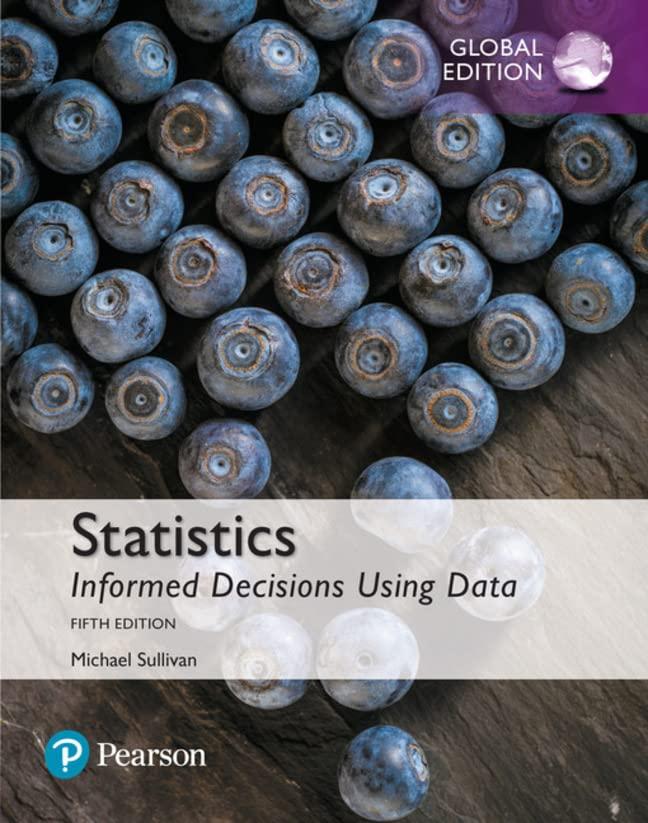Urn I contains six black and nine white balls; urn II contains five black, twelve white, and
Question:
Urn I contains six black and nine white balls; urn II contains five black, twelve white, and nine red balls; and urn III contains eleven black, six white, and twelve red balls. Roll a fair die. If the die is a one, three, or five, randomly select a ball from urn I.
If the die is a two or four, randomly select a ball from urn II. If the die is a six, randomly select a ball from urn III.
(a) Determine the probability that the ball is black by drawing a tree diagram.
(b) Determine the probability that the ball is black using the Rule of Total Probability.
(c) If a randomly chosen ball is black, what is the probability that the ball came from urn I?
(d) If a randomly chosen ball is red, what is the probability that the ball came from urn I? urn II? urn III?
Step by Step Answer:

Statistics Informed Decisions Using Data
ISBN: 9781292157115
5th Global Edition
Authors: Michael Sullivan





